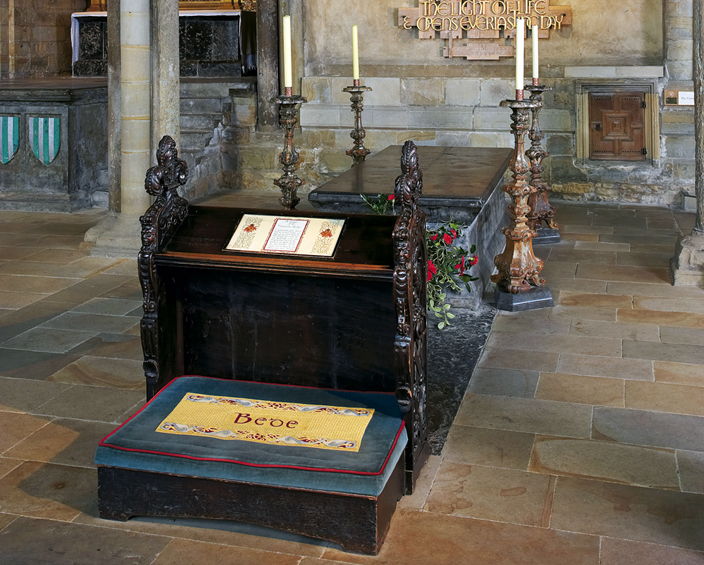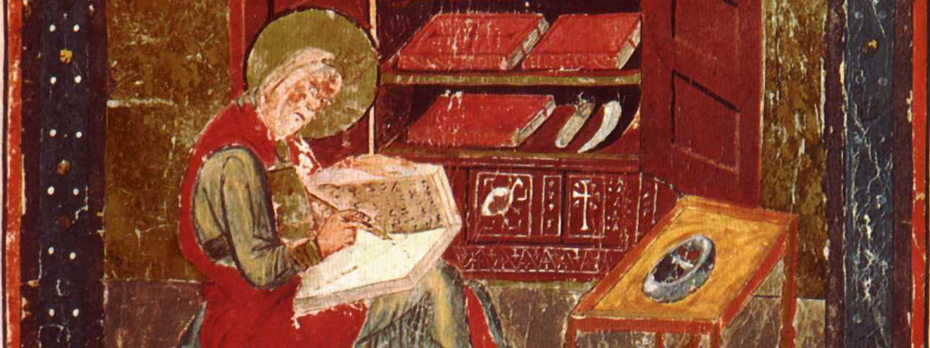The Venerable Bede
Bede was known as the Father of English History. How did he come to gain that title?
Who Was the Venerable Bede?
The Venerable Bede – also known as St Bede – is widely regarded as the greatest of all the Anglo-Saxon scholars. He lived and died in between the twin monasteries of Wearmouth and Jarrow in the North East of England between 673 and 735 AD and wrote or translated some forty books on practically every area of knowledge, including nature, astronomy, and poetry. He also wrote the first martyrology (a chronicle about the lives of the saints).
However, his most famous writing was on theology and history and his best known work is The Ecclesiastical History of the English People.
Read more about the Life and Death of Bede.
Why Was the Venerable Bede Important?
Although Bede was a polymath and religious figure who described himself as having “devoted [his] energies to the study of the scriptures, observing monastic discipline, and singing the daily services in church” and for whom “study, teaching, and writing had always been [his] delight", he is remembered today as the earliest English historian, whose work has shed light on a period of English history that would have otherwise been unknown.
He is often referred to as ‘The Father of English History.’
Bede’s Association with Durham
The Venerable Bede’s bones have been in Durham Cathedral since 1022. They were brought from Jarrow by a monk called Alfred who had them buried alongside Cuthbert’s relics, where they remained until they were moved to the Cathedral’s Galilee Chapel in the 14th century.
Why is Bede called the ‘Venerable’ ?
In fact, ‘the Venerable Bede’ comes from the Latin inscription on Bede’s tomb in Durham Cathedral, reading:
HIC SUNT IN FOSSA BEDAE VENERABILIS OSSA
Here are buried the bones of the Venerable Bede

Bede's tomb in Durham Cathedral.
© Durham Cathedral and Jarrold Publishing


